Although being almost 70 years old, Derrick de Kerckhove has a vitality and an energy that many people under 40 would want for themselves. Derrick, who used to work closely with Marshall McLuhan, is now a Professor of the French Language department at the University of Toronto and of the Sociology department at the Federico II University in Naples, scientific director of the Italian magazine Mediaduemila and research director at the UOC. We meet him at the IED Barcelona in an apparently exhausting day: he has just landed from Milano, where he had arrived the previous day in a plane from Toronto; we end our interview after 10:30 pm and then he goes to meet some friends for dinner; and the next morning he is giving a lecture about Social Business Design at ten o’clock at the IED’s recently opened new headquarters and, after that, flying back to Canada.
You were born in Belgium but spent some of your childhood in India and Pakistan.
Only three years, but they were pretty important, because it made me develop a global sensitivity from childhood. I saw many levels of poverty which I had not been exposed to in Europe and I saw a completely different cultural grounds: there were the Hindus, the Muslims, the Sikhs… And I had a very strong contact, as a young boy, with the servants of the house where I lived. I got a democratic, global and multilingual system. I learned Urdu! I used to write in Urdu!
How many languages do you speak? You are Belgian, learnt Urdu, worked in Italy, we are now speaking in English…
I’m terrible at it. I only have English, French and a bit of Italian. I used to speak Spanish until I learned Italian, and now I cannot speak Spanish anymore. And I cannot speak Urdu anymore, it’s all gone.
As you probably know in Spain we have several languages besides Spanish, the same as in Belgium, Canada or India. What do you think about growing up in a bilingual country? Is it better?
Every twenty years they change their mind about this, but I am certain, from my experience and from the experience of my children as well, that having two languages is an enormous advantage. It gives you access to different fields of knowledge and sensibility. To have more than one language is a fantastic experience. It is very good for the development of the person.
I have read that you took part in Seville’s Universal Exposition in 1992.
Yes I did. Well, I mean, I was just talking. I’ve been to Spain several times. I used to be part of Artfutura, right here in Barcelona, with Moncho Algora, in 1990 and 1994. And I was in Cyberarts in Seville. I have also been to Santander, to A Coruña, ton Madrid… I come to Spain a lot. In fact, I’ve been translated in Spanish, a couple of books. Spain has a very good connection with new interactive arts. You have a wonderful madman, who is Marcel·lí Antúnez. He is completely crazy, but he is great, I went to some of his shows and I loved it. You also have good scholars: Antoni Mercader, Román Gubern… they are people who are thinking very interesting things.
But you started studying French language and Literature.
It was an accident. Actually, it wasn’t too bad. It cultivates your sensibility and you do become critically aware… you learn methods of looking and feeling. But I think I would have probable been a better architect. I loved being an architect, but I didn’t realize it was so good.
Afterwards you studied Sociology and new technologies.
That was an accident too. Now that I think of it, my life is nothing but a series of wonderful accidents. I was very much bored by French Literature and my wife, who was my fiancée then, said that if I was bored at the University of Toronto because you are only at the French department you are stupid. You should go and listen to the famous people here, who are really well-known around the world for being who they are. She gave the names of Marshall McLuhan, Northrop Frye and Robertson Davies. Robertson Davies was a writer, a novelist, and he was OK. Frye was a really famous literary critic, a big guy, but I didn’t find it that exciting. But McLuhan… that was amazing! I couldn’t understand anything he said. Maybe that’s why it was interesting!
Nowadays many people have always an internet access with them, such a mobile phone. And when there is some argument about some detail (i.e. the year when a battle took place or who directed some movie) there is always someone who googles it and comes with the right answer. Is this something good?
It’s absolutely wonderful! It’s an augmented memory. Would you rather not have it?
But then no one will ever be wrong because before saying anything we will check it online.
That’s an old argument. Amon-Ra, the lord god of the Egyptian story, said to Tot, the inventor of writing, that his invention wouldn’t be good for humanity, that it would kill human memory. Humans would have everything in fragments, they would trust those things instead of their brains and they would just do a fool of themselves.
Do you think then than it is more important to know where to find information than knowing that information itself?
Absolutely. It’s a change of the ground rules of being. It’s superficial, that is true, but think of all the wars we had to go to for ideology issues… No, I’m joking, but not completely. Of course it’s good to have some kind of depth, but it is also wrong to condemn what happens today on the basis of that kind of judgment because we are in a completely different environment. The very fact that we can go in the internet and have access to the information makes it a different cognitive environment. We cannot operate mentally, socially or psychologically in the same way as we have when the information had to be gained at a great cost. We have not only expanded our memory, but intelligence too. It’s an augmented reality and a connected mind, and it is one that has access to everything. We have to find different operating rules for that kind of system.
What kind of rules?
In Education, for example, I would basically recommend two things: one, learn to read on paper; and two, allow these children and young people to work together, encourage them to collaborate. Instead of this stupid one-to-one competition, put them together, these people are intelligent and the more they work together the more resources they will bring. Why is that that every great innovation in the internet is made by more than one person? Sergey Brin and Larry Page created Google, the Youtube guys were three… just one for the chat, though.
You just said that kids should learn to read on paper. Do you think that books are not going to disappear?
I hope not, that would be a problem. I think they are the connection between reading and controlling language. The problem is either you control language or it controls you. That’s the story of oral society versus written society and is the story of written society versus electronic society. In an oral society language controls body, because it is dominant and you are subject to it. In a silent reading culture you control language, which is very important, so you take power over the most important medium of all, which is language. As you take power of it you develop an identity, you develop some privacy, you acquire some depth. The thing about electricity is that it is not just written language and it is not just oral, is between, it is a hybrid, so you really lose a lot of control. On the other hand, you gain a great deal of powers that you wouldn’t have because language extended by electricity is immensely powerful. But it is power that is also controlling you.
You have said that if you mix with brilliant people you become more brilliant yourself. Does this work also the other way round?
It goes also for emotions. If you are with happy people you will probably be happy. If you are at school and most of the kids are very dumb it will be much more difficult and you will become much more of a loner. You have children who have “dumbed” themselves to join the group, because being out of the group is not something nice when you are a teenager. And if you are in an environment with very intelligent colleagues and collaborators you are going to be obliged, to keep your job but also your personal dignity, to ask yourself more. And if you ask yourself more you will probably do more.
Do you think then that it would be a good move to have at schools some classes for smart kids and others for not so smart ones?
I don’t like the elitism that it implies, but I also understand that maybe it is not the right method, but it is the right thing to do: to encourage the development of mind.
You have sometimes mentioned the “common intelligence”. Would Wikipedia be a good example?
It is a wonderful example, of course it is. In fact, common intelligence and collective intelligence exists in many forms, but the most important one is connected intelligence. Take any of these extraordinary web 2.0: social media, Twitter, blogs… what these things have done is allowing people to improve their skills. Wikipedia is something where everybody, anonymously, contributes to a general common encyclopedia. The anonymousness is very interesting, because it allows people to contribute without having to compete. They do it for the sake of it. Innocentive would be another example. It’s more than 100.000 people (doctors, chemists, researchers…) who have a journal of questions, and they post them online. When they have time, they read the questions others have posted and, if they know, the answer, they post it.
It’s a high-level wikipedia.
Yes, it’s like wikipedia, but service-connected. Twitter is an extraordinary system of expanding intelligence. There’s a huge amount of innovations to enhance knowledge, and they keep inventing more.
In Spain we have a big issue with piracy and the downloads. The famous Sinde law was approved but some people says it leads to censorship.
It’s interesting. I had never tries to put it together like that. You cannot possibly stop that kind of thing. Rather than apply big forms of control over that, let that be parallel to another economy to support the creation of music. But let’s not forget something very important about music: why are people pirating? People are downloading songs first, because prices are really exorbitant; and second, because who’s getting the money? Not the artist, very rarely. You have to be really cool if you want to be a musical band to make enough to pay your guys and your own promotion. So these kids are putting it all together online, getting their own online support system, create things like crowdfunding. I was at the library of Congress in 2004. That’s the year when the office of copyright allowed to give 94 more years to Disney. The copyright was invented by Benjamin Franklin, invented or at least codified and organized. What Franklin stalled was “let’s encourage the creation of intellectual property so that the people will do it but, at the same time, let’s understand that that intellectual property becomes public property after a limited number of years.” And that number of years was fourteen years. And it’s now more than a hundred years that Disney is keeping that property. That’s scandalous! All right, it’s an industry and they have to pay salaries and so, but they are making a pile more money than that, and they are doing it on the basis of giving a bad example. So I like copyleft and Creative Commons, I do find these things absolutely delicious.
Radio was the main medium of communication for around 40 years, until TV was invented. TV became the “star” and lasted again around 40 years, until Internet appeared. What can we expect for 2030?
I cannot answer this question but I can give you an example of one of the most interesting things that I have seen in art and technology in the recent years. One of my compatriots, David Rokeby, set up an installation from Rotterdam to Toronto: Very nervous system. In each of these cities there was a square area with four speakers, and it is so good that you can hear the breathing of the person in Toronto. So you close your eyes in that space and you just follow the breathing. It feels as if you are in touch. It is an amazingly intimate thing. It is such an amazing experience to do that you have to try it. You can be told, but you have to try it because you feel that you are right there. It is not like the phone, it is not like Skype, it touches you. It’s completely different, and it is huge. You are talking about next media… it could be that. Here’s another one. This one is a big joke, but it is a joke. And it is a joke that works. It is made by Cristophe Bruno, who says that he is an engineer, but he is a really good artist. You put on your neck a plaster and the you go to a website and you key in ten nasty words, like torture, prosecution, war… ten words. As we know, search engines work using key words. So every time the search engine finds one of those words a certain number of times in the news feeds you get shocked. Why is it so good? It is really amazing because it is the new version of the scourge. It is sharing the Christ’s burden of saving the world. It is a big joke, but a profound joke. It is another tactile thing. It’s a tactile connection to the world.
I’m sure that if you type, instead of those nasty words, “literature” or “art” you get no shocks at all.
That’s what I call homeopathic art: a very small dose of poison hits the whole body without killing, just waking you up.
There was the case of this girl in the States, Angie Varona, who took some pictures of herself in a bikini and became a huge success in internet. Sometime later she said that she had destroyed her own life, because everybody was looking for her.
It’s true, very famous people don’t have such a wonderful time. Some people just absolutely need it, but I suppose this girl didn’t really know how internet works, but I wonder why she put the pictures there in the first place.
Some people believe that, since there is so much information about us everywhere, in some time we won’t be so strict when judging other people’s mistakes, because everybody makes mistakes and somebody could find ours.
That points to cultural and social tolerance. I think it is probably not wrong and it is probably inspired by the fact that we are globalized. We cannot consider our own immediate surrounding as the end of the world, it is not. The end of the world is much further than that and full of people. We are in uncertain ethical times, we don’t know who is right and who is wrong, and we are all expecting something. “Indignados” are a example of people for whom ethical dimension becomes more and more real. So was Wikileaks.
Wikileaks has big problems now.
Of course Wikileaks has big problems, but I hope Wikileaks is not the only time we are going to see something like that, because it is a very important thing. Unfortunately they have managed to clamp it down, give Assange a very bad reputation… He didn’t reveal anything really big, but he didn’t really need it. Before Wikileaks we thought that there was something but we weren’t sure, now we don’t need to be sure because we know there is something to hide.
Let’s talk a bit about Marshall McLuhan. You consider him your master.
Absolutely. Without him I wouldn’t be here.
He said that “the medium is the message”. Does this mean that everything is done and said and we cannot expect anything new to appear in arts or culture?
No, what is happening now is as big as the Renaissance, and it could be much bigger. It is a big change of being. It is not just a change of mood or politics, it is a change of being. Exactly where we are going I am not absolutely sure, but we are exploring possible ways of being. Cinema is a good example, I call it “Pinocchio 2.0”: Blade runner is one example of being a replicant, Tron is going inside the machine, Avatar is going 3D into the screen and beyond, The Truman show is being the focus of attention of the whole world not knowing that one is such… I used to throw away the American cinema because of the happy endings and so, but no, they are very intelligent and they know what they are looking for. I have always been fascinated by the way we project our image. That’s why I like Stelarc. In fact, the first time I met him was here in Barcelona. I drove all the way from Nice to Barcelona just to hear Stelarc. I left my car in the middle of the highway or somewhere, I went to listen to Stelarc and when I was back, of course, my car was gone. It cost me a lot of money to recuperate it.
Was it worth it?
Yes, it was an amazing talk. He is an example of what I was saying, he is trying different ways of being human. Mostly Physical, but psychological too. He is as famous as Marcel·lí Antúnez, globally. He has grown himself another ear. Very disgusting. And I told him one day: “Stelarc, you are the most disgusting guy I have ever seen”. And he said: “Me, disgusting?” But then I said it was a big compliment.
McLuhan wrote also about the “global village”, and it was in the sixties, when no one could even imagine internet. Was he like a 20th century Jules Verne?
No, it was different. He discovered that teaching Literature to young American students was hopeless, they didn’t get it. So he questioned which was their culture, and he saw this advertising. He wrote a book, The mechanical bride, where he was actually analyzing pictures and asking the people what did it say to them. They thought that was interesting. And that’s how he began studying culture as an object of analysis.
In your book The alphabet and the brain you explain why we write from left to right.
Yes, the reason why we write to the right and not to the left, like Arabs or Hebrews, is because our alphabet is a continuous series of signs: consonant-vowel-consonant-vowel, so it is a unidirectional succession of representations of syllables, obliging the mind to analyze what we read. Whereas if you have to guess, you have to have an iterative look, what is more important is grabbing the image, not analyzing it, and that’s why people write to the left. The shift from the left to the right came from the change of the basic structure of the writing system, and it changed because Semitic languages make a big separation between consonants and vowels. Consonants are the substance of the word, the “lexikon”, and the vowels are the grammatical connection between the words. The Greek is an Indo-European language, which means that the meaning of the words, the “lexikon”, is not made just by consonants, but by consonants and vowels. And that’s what the Greeks did. They took the Phoenician system, a Semitic language, and adapted it. In fact, the Greeks wrote continuously, there was no separation between words or sentences, you had to read aloud and figure it out.
To finish, let’s go back to the beginning of the interview and to your very own origin. Who’s the best writer in French? Balzac? Stendhal? Apollinaire? Baudelaire? Victor Hugo?
Blaise Pascal is my favorite. He is the connection between now and the Middle Age. He was very religious and had a very different sensibility. I would love to have a Pascal who would tell me about the quantum sensitivity. It’s a change of approach.
He is not the most famous…
He is amazing. I love intelligence, and he was very intelligent and passionate.
Since he is not so well-known, which of his books would you recommend us to begin with?
It’s called Pensées. Get that, read it, take a bit of time. And let it sink in.



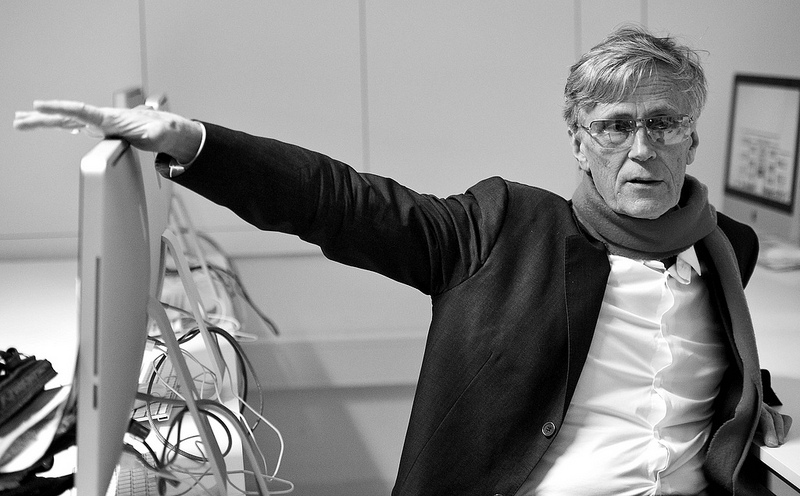

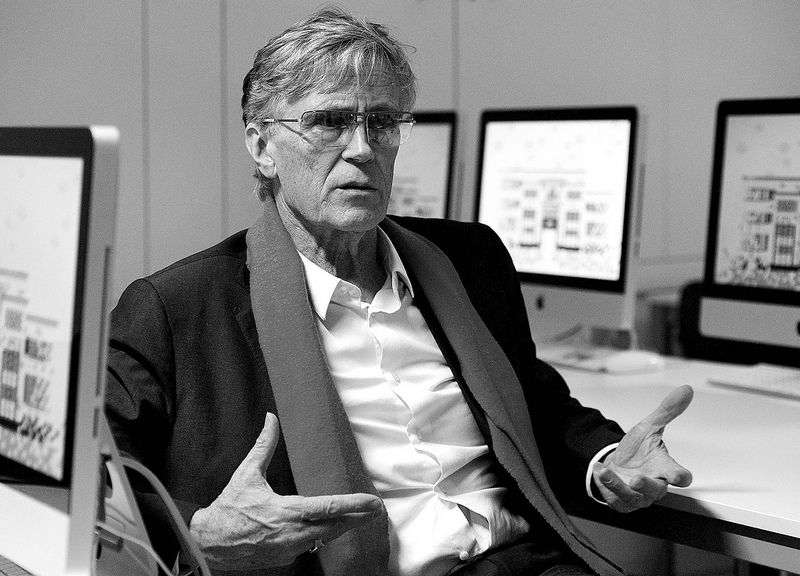
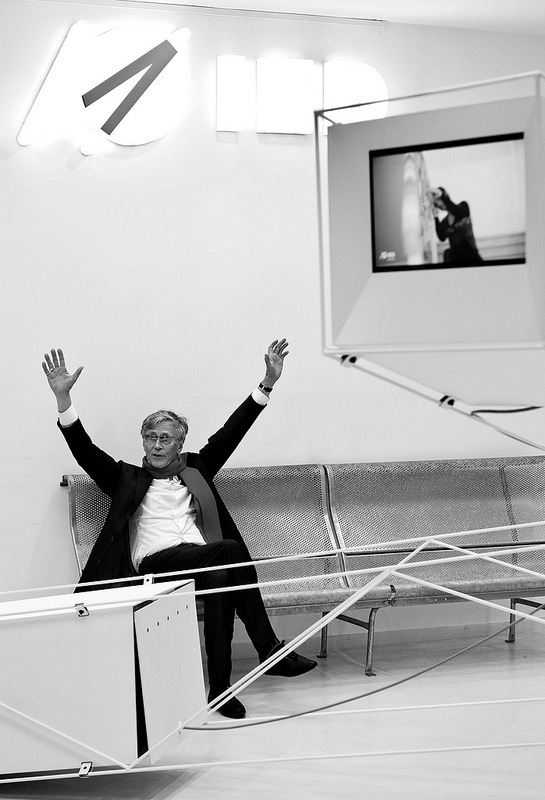
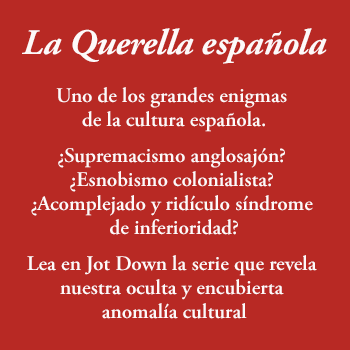
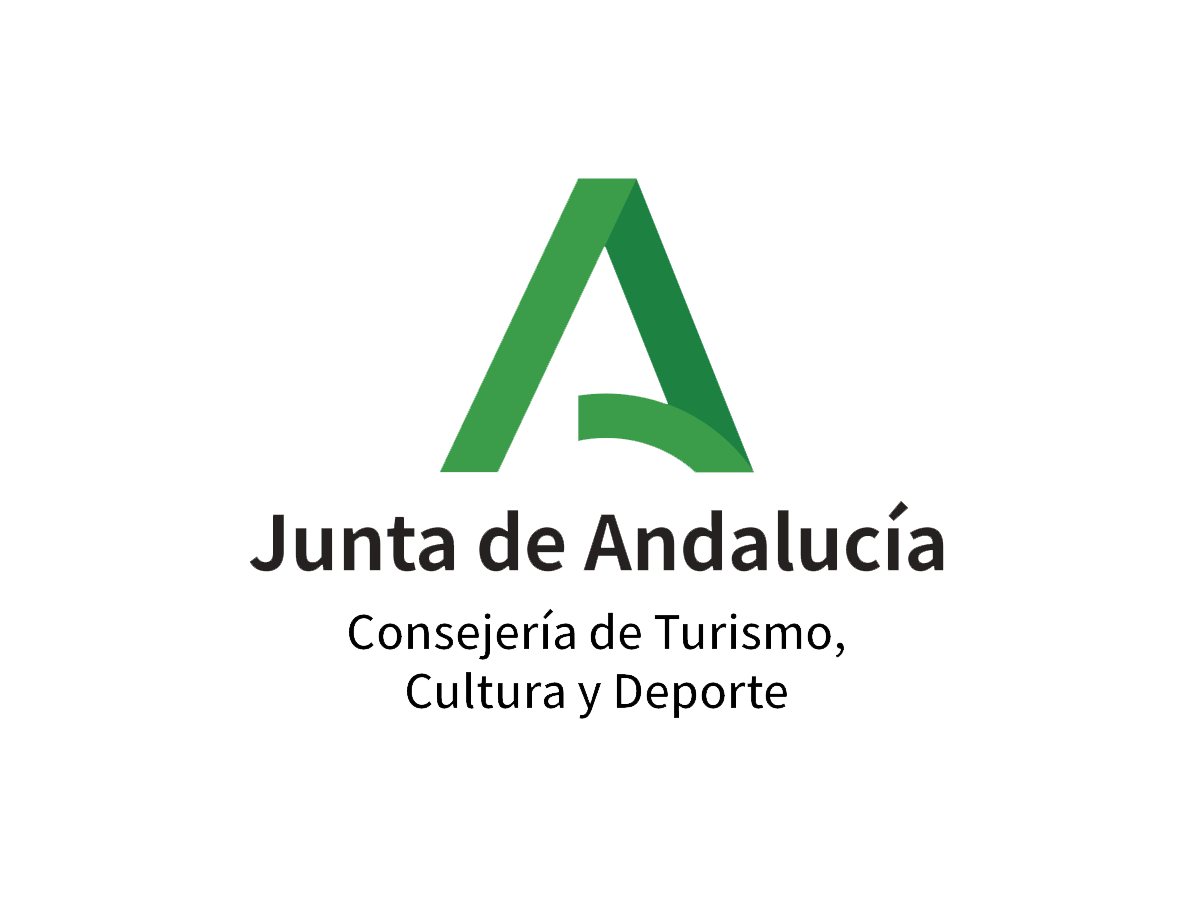
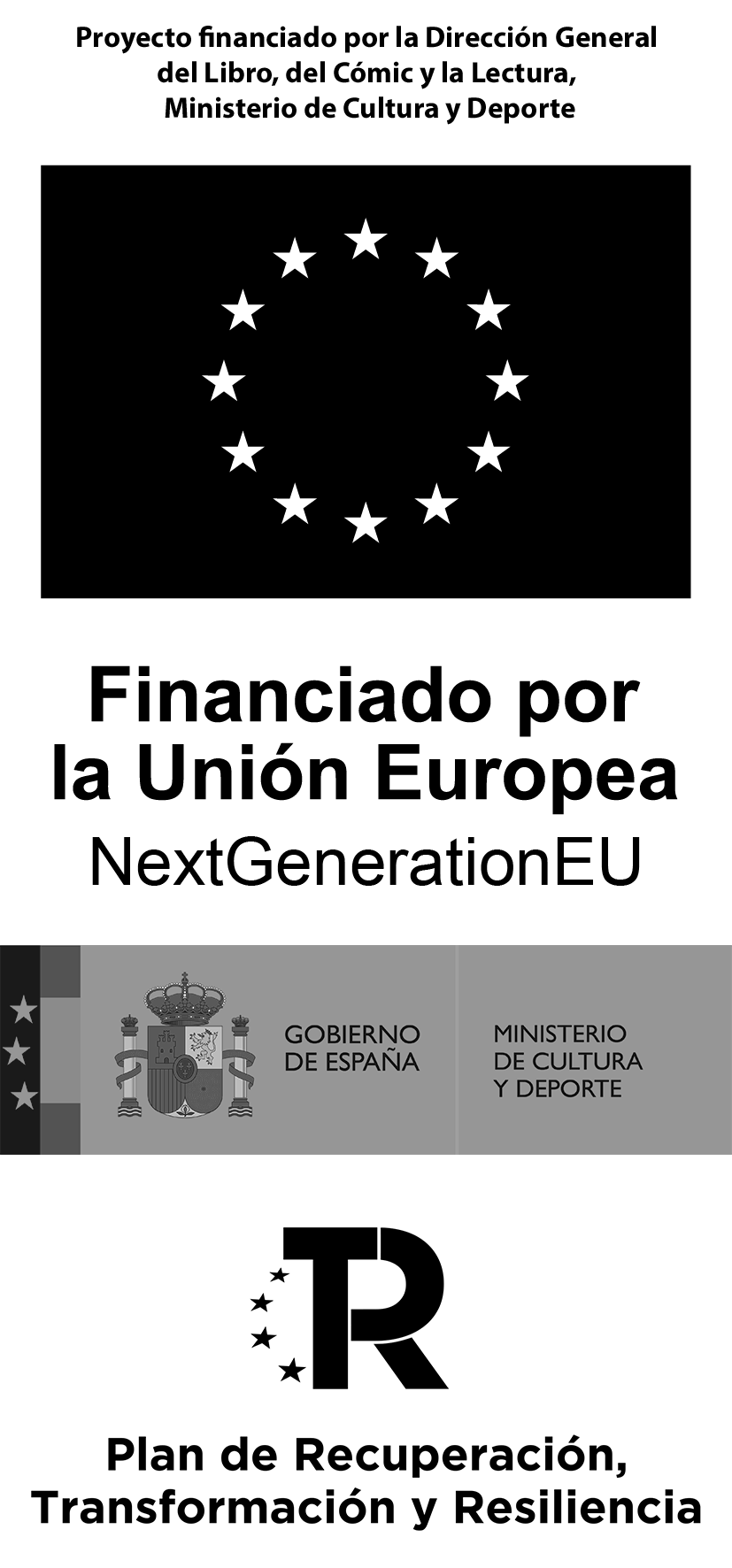
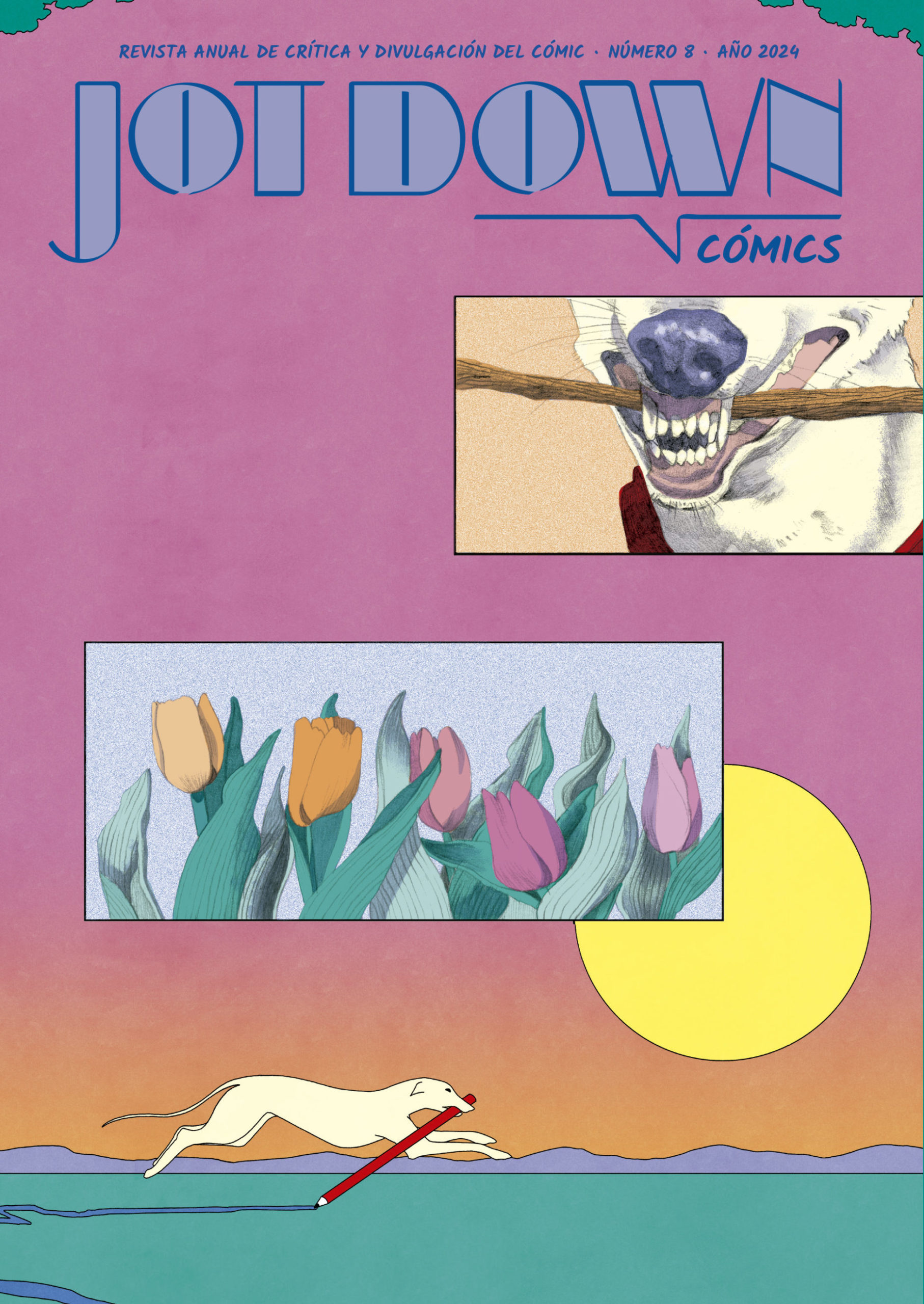




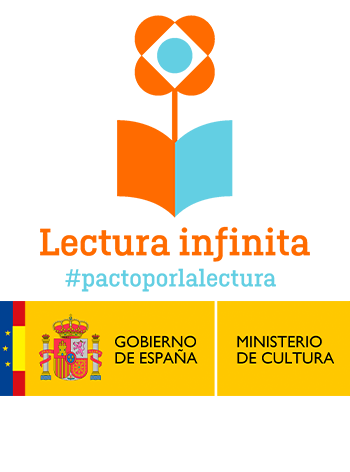
Pingback: Jot Down Cultural Magazine | Derrick de Kerckhove: “O controlas el lenguaje o el lenguaje te controla a ti”
Pingback: SemioticaStudio » Transmedia Literacy Seminar II – The chronicle
Pingback: Towards a Posthuman Life